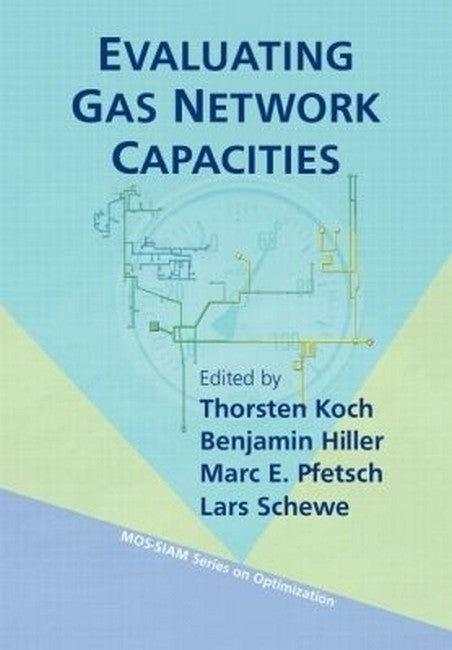Thorsten Koch is a Professor of Software and Algorithms for Discrete Optimization at TU Berlin and director of the Scientific Information Department at Zuse Institute Berlin (ZIB). He joined ZIB in 1998, became a member of the DFG research center MATHEON in 2001 and has served as head of the Linear and Nonlinear Integer Programming Group since 2009. He has led joint research projects with industrial partners in the planning of infrastructure networks, chip verification, and integer programming. Benjamin Hiller is a postdoctoral researcher at Zuse Institute Berlin. His research interests involve solution methods for large-scale real-world optimization problems, in particular mixed-integer (nonlinear) programming, and column generation. His recent work focuses on optimization problems related to gas transportation networks. Marc Pfetsch was a postdoctoral researcher at Zuse Institute Berlin from 2002 until he completed his habilitation in 2008. That year he was appointed Full Professor for Mathematical Optimization at TU Braunschweig. Since 2012 he has been Full Professor for Discrete Optimization at TU Darmstadt. His research interests are integer and mixed-integer nonlinear programming, in particular infeasibility and symmetry handling. Lars Schewe is a postdoctoral researcher at Friedrich-Alexander Universitaet Erlangen-Nuernberg. His research interests include mixed-integer (nonlinear) optimization with an emphasis on problems in networks.
Request Academic Copy
Please copy the ISBN for submitting review copy form
Description
Foreword Preface Part I: Fundamentals Chapter 1: Introduction Chapter 2: Physical and Technical Fundamentals of Gas Networks Chapter 3: Regulatory Rules for Gas Markets in Germany and Other European Countries Chapter 4: State of the art in Evaluating Gas Network Capacities Part II: Validation of Nominations Chapter 5: Mathematical Optimization for Evaluating Gas Network Capacities Chapter 6: The MILP-Relaxation Approach Chapter 7: The Specialized MINLP Approach Chapter 8: The Reduced NLP Heuristic Chapter 9: An MPEC Based Heuristic Chapter 10: The Precise NLP Model Chapter 11: What Does "Feasible" Mean? Chapter 12: Computational Results for Validation of Nominations Part III: Verification of Booked Capacities Chapter 13: Empirical Observations and Statistical Analysis of Gas Demand Data Chapter 14: Methods for Verifying Booked Capacities Chapter 15: Perspectives Appendix: Background on Gas Market Regulation Acronyms Glossary Regulation and Gas Business Literature Bibliography Index.

